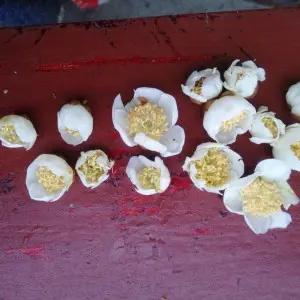ഒക്ട് . 22, 2024 11:32 Back to list
Innovative Pollination Techniques for Apple Orchards in China and Their Impact on Yield
The Methods of Apple Pollination in China
Apple cultivation is a significant agricultural endeavor in China, which is one of the largest producers of apples in the world. The successful pollination of apple trees is crucial for obtaining high-quality fruit and maintaining yield levels. This article explores the various methods of apple pollination utilized in China, highlighting traditional practices as well as modern advancements in technology.
Traditional Pollination Methods
Historically, apple pollination in China has relied predominantly on natural methods involving insects, particularly bees. The relationship between flowering apple trees and pollinators is symbiotic; while bees gather nectar and pollen, they inadvertently transfer pollen between trees, facilitating fertilization. The Chinese countryside is often vibrant with beekeeping activities, as local farmers maintain hives to enhance pollination effectiveness.
Among the native bee species, the Chinese honeybee (Apis cerana) is widely used due to its ability to thrive in various climates and its effective pollination skills. Farmers often position hives near orchards during the blooming season to optimize pollination. The use of beehives not only improves apple yield but also contributes to overall biodiversity within the agricultural ecosystem.
Controlled Pollination Techniques
In recent years, the importance of controlled pollination techniques has gained recognition in many regions of China. These methods involve the deliberate transfer of pollen from one apple variety to another to improve fruit quality, enhance colors, and develop specific flavor profiles. Controlled pollination is particularly beneficial for producing hybrid apples that require cross-pollination.
china apple pollination method

One common approach is the use of pollen bags. Farmers collect pollen from selected trees, then carefully store and later apply it to the flowers of other apple varieties when they bloom. This technique allows for greater control over the genetic traits of the resulting apples, leading to improved marketability.
Technological Advancements in Pollination
With advancements in agricultural technology, new methods of apple pollination are emerging, making the process more efficient and effective. For instance, the use of drones equipped with pollination systems is being explored. These drones can systematically distribute pollen over vast apple orchards, reaching areas that are hard for bees to access. This method can significantly increase pollination rates, especially in large-scale operations where traditional methods may fall short.
Additionally, researchers in China are developing artificial pollination techniques that replicate the natural pollination process. These might include mechanical devices that simulate the motion of bees. By employing these innovations, farmers can address challenges such as declining bee populations, which pose a threat to natural pollination.
Integrated Approaches to Pollination Management
Many farmers are beginning to adopt an integrated approach to pollination management, combining traditional methods with modern technologies. This multifaceted strategy involves monitoring bee populations, using controlled pollination techniques, and applying technological innovations to achieve optimal results. Farmers can assess the effectiveness of pollination in real time, allowing them to make adjustments as needed to ensure high-quality fruit production.
In conclusion, apple pollination in China is a dynamic field that blends traditional practices with modern technological solutions. The balance between utilizing natural pollinators and implementing innovative strategies is key to enhancing apple yield and quality. As challenges such as climate change and declining bee populations arise, the ability to adapt and adopt various pollination methods will be crucial in sustaining China's apple industry and meeting the increasing demand for high-quality apples both domestically and internationally.
-
Plant Pollen Analysis: Fast & Accurate with GPT-4 Turbo
NewsAug.02,2025
-
KiwiPollen with GPT-4 Turbo: AI Health Supplement Boost
NewsAug.01,2025
-
Pollen Peach Tree AI Management with GPT-4-Turbo
NewsJul.31,2025
-
Eco Fruit Paper Bags for Peak Freshness | Durability Focused
NewsJul.31,2025
-
Pollen Peach Tree for Pure Pollination and High-Quality Peach Pollen
NewsJul.30,2025
-
Premium Cherry Pollen for Pure Pollination & Different Types
NewsJul.30,2025